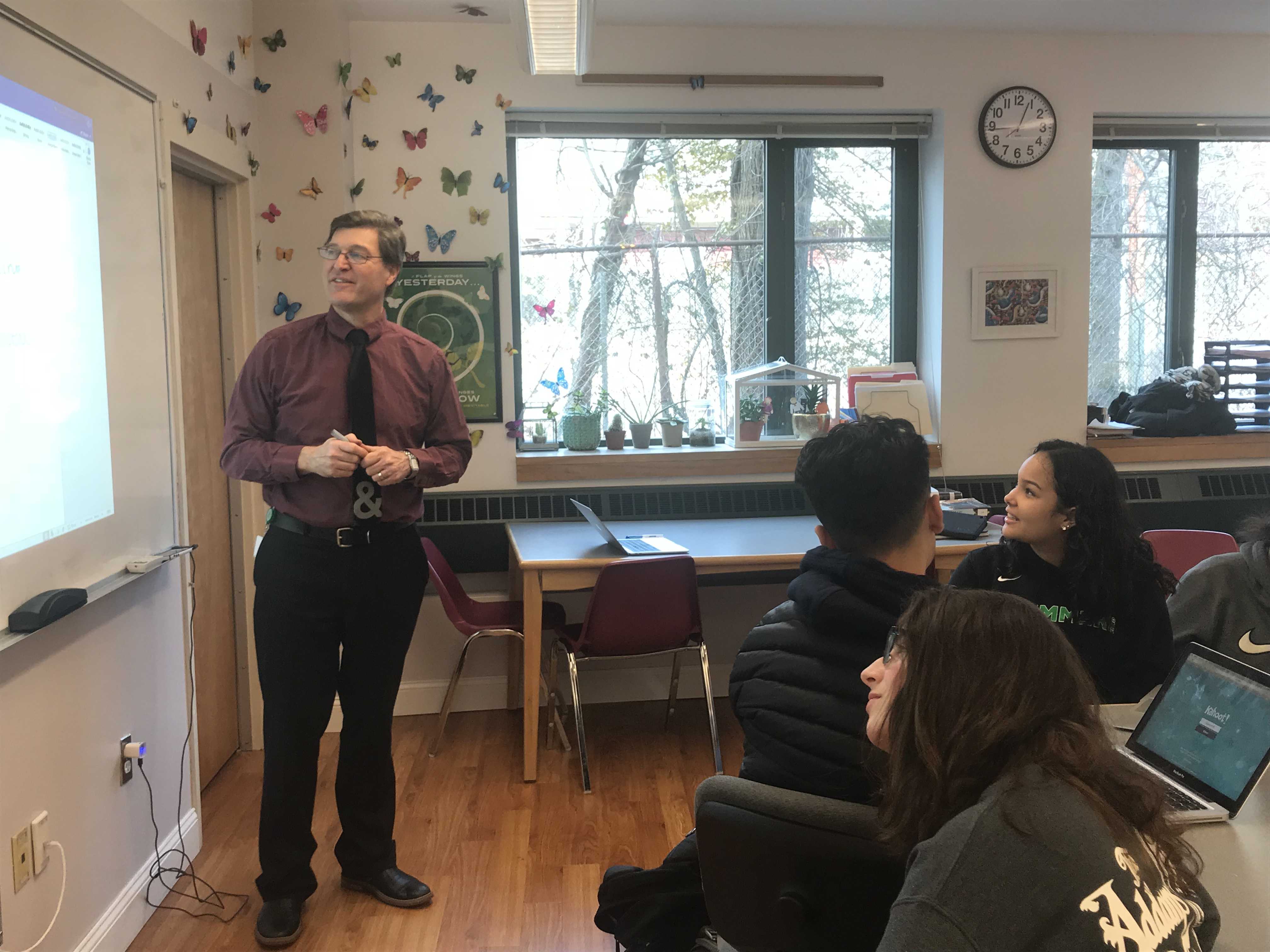
Humanities Department Co-Chair Donald Reese rejects the traditional letter-based grading system, instead employing a feedback-based system.
Without grades, more students would flourish, avoid fear of failure, discover their passions, find purpose in their studies, and take control of their own learning, according to Reese.
In his sophomore English class, Reese only gives letter grades when required by the School at the end of a marking period, at which point he meets with students in one-on-one discussions to decide the outcome together.
Otherwise, Reese only provides written feedback and suggestions for improvement on assignments.
Renowned education expert Alfie Kohn’s essay, “From Grading to Degrading,” largely inspired Reese’s feedback-based system.
“In my experience, the most impressive teachers are those who despise the whole process of giving grades,” Kohn writes. Their aversion, as it turns out, is supported by solid evidence that raises questions about the very idea of traditional grading.”
Additionally, Reese rarely gives tests, choosing to assess students using writing assignments, readings, and class discussions.
Reese believes grades are one of the biggest problems in the education system.
“They substitute obedience and performance for real education and thinking, and in doing so distort learning itself in schools,” he said.
According to Reese, grades do poor a job of helping to foster curiosity.
“Especially in English class, when we’re reading literature, students are more concerned with getting details right than they are with really reading the text for themselves, for what they personally can get out of their encounter with the text,” Reese said.
His students agree.
“I really enjoy not being graded,” said Catherine Leeder ’20. “I don’t feel pressure to make my work perfect, and receiving feedback on my papers helps me to understand my strengths and weaknesses as a writer.”
Alvin Zhao echoed Leeder.
“I like Dr. Reese’s grading system, especially because in English a student’s performance can be judged more subjectively than objectively,” Zhao said. “This gives students a voice.”
In the future, Reese hopes to eliminate grades from the entire School. He recognizes that this would be a difficult task, but argues that it would “revolutionize education at Brimmer and May.”
On this front, Reese isn’t alone. A Facebook group for educators, “Teachers Throwing Out Grades,” continues to gain traction across the nation, with over 8,000 members to date.
When he made the switch, in an article for Education Week, Mark Barnes wrote, “Students began completing all assignments, became more engaged learners, and even passed standardized tests at higher rates than their peers in classrooms with traditional grades.”
In another article from the publication, “The No-Grades Movement,” teacher Kate Stoltzfus shares similar thoughts.
“The goal of the no-grades movement is to steer students away from passive learning and into a more active role in their schooling,” she writes. “The focus is on the learning process rather than the score, the pressure of performance replaced by an environment where students feel free to make mistakes, continuously self-evaluate, and develop deeper understanding. It also champions increased parent involvement and teacher feedback.”























































